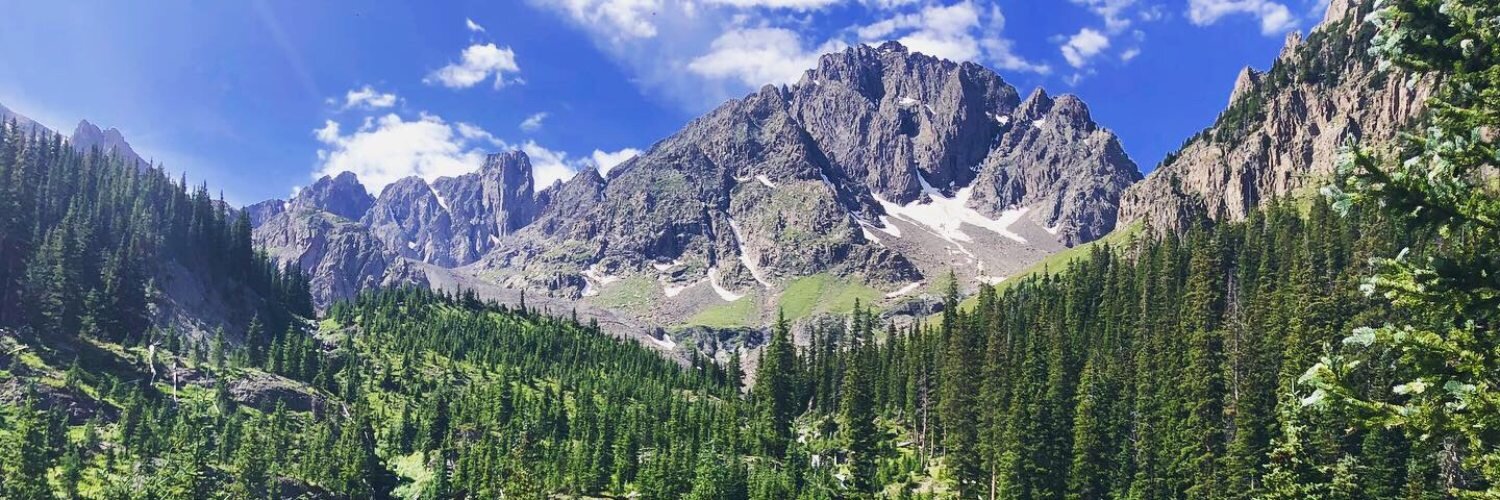The Conservation Alliance applauds the u.s. house of representatives for passing the CORE act
The House of Representatives Votes to invest in Colorado’s Outdoor Recreation Economy by Protecting Public Lands
Bend, Ore., October 31, 2019 – The U.S. House of Representatives passed H.R.823, the Colorado Outdoor Recreation and Economy (CORE) Act today. The CORE Act is the first statewide Colorado wilderness legislation to pass the U.S. House of Representatives in over a decade. The legislation, introduced by Congressman Joe Neguse (D-CO-02) earlier this year, brings four longstanding, locally built campaigns into one Colorado lands package that if successful will protect approximately 400,000 acres of Colorado’s iconic public lands across four varied landscapes. Senator Michael Bennet (D-CO) has introduced companion legislation in the Senate (S. 241).
“We broadly support thoughtful and community-driven bills that support outdoor recreation. The CORE Act represents this approach and creates valuable new opportunities for exploration, recreation and the related community and health benefits of time spent in Colorado’s great outdoors,” says Eric Raymond, Director of Social Impact and Advocacy, The North Face.
The CORE Act will designate new wilderness and special management areas in the Continental Divide area, protecting backcountry opportunities in the Spraddle Creek Wilderness addition outside of Vail, and exquisite backcountry ski terrain and mountain biking around the Tenmile Mountain outside of Frisco. The bill will also create Camp Hale as the nation’s first National Historic Landscape, preserving the history, wildlife, clean water, and booming outdoor recreation economy in the area. In the San Juan and Uncompahgre National Forests of southwestern Colorado, the CORE Act will protect backcountry skiing near Lizard Head Pass outside of Telluride with the creation of Sheep Mountain Special Management Area, and will expand existing mountain biking near the town of Ophir. Wilderness additions in the famous Mt. Sneffels 14er will protect work class climbing and hiking while preserving access to the Liberty Bell/Hardrock 100 trail. The bill would prohibit future oil, gas, and mining development on 200,000 acres of rugged, wild lands along the Thompson Divide in the White River National Forest, and protect historic ranching and agriculture, and varied outdoor recreation such as the famous Thompson Creek Fins sport climbing area. The legislation will also add protections to the Curecanti National Recreation Area.
The CORE Act is an investment in Colorado’s outdoor recreation economy. Protected public lands in Colorado serve as the foundation of the state’s $62 billion outdoor-recreation based economy, which sustains 500,000 jobs in Colorado.
“The CORE Act demonstrates that protected public lands are our common ground. We applaud Senator Bennet and Congressman Neguse for championing this important legislation, and hope today’s passage in the House of Representatives paves the way for success in the Senate,” said Kirsten Blackburn, Advocacy Manager, The Conservation Alliance.
The legislation now awaits action in the U.S. Senate. The Conservation Alliance is leading a small group of outdoor and craft brewery business leaders to Washington D.C. next week to encourage the Colorado delegation to make the CORE Act law this Congress.
About The Conservation Alliance:
The Conservation Alliance is an organization of like-minded businesses whose collective contributions support grassroots environmental organizations and their efforts to protect wild places where outdoor enthusiasts recreate. Alliance funds have played a key role in protecting rivers, trails, wildlands, and climbing areas. Membership in the Alliance is open to all companies who care about protecting our most threatened wild places for habitat and outdoor recreation. Since its inception in 1989, The Conservation Alliance has contributed more than $20 million, awarded 580 grants, helped to protect more than 51 million acres of wildlands; protect 3,102 miles of rivers; stop or remove 30 dams; designate five marine reserves; and purchase 13 climbing areas. For complete information on The Conservation Alliance, see www.conservationalliance.com.


